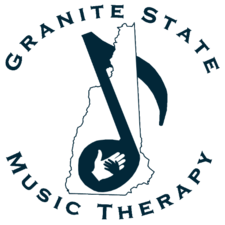Cultural Competencies in Music Therapy
As February comes to a close and we wrap up Black History Month, I want to take this opportunity to discuss something incredibly important: cultural competence. But what exactly does it mean? In essence, cultural competence refers to our ability to work effectively and respectfully with individuals from diverse cultural backgrounds. Culture itself is a rich blend of shared beliefs, values, worldviews, and traditions that define a group’s identity.
One of the most remarkable aspects of music therapy is its universal nature. It doesn’t rely on a certain belief system to help its participants succeed. While culture is complex in nature, music therapy is based on elements that are general to humanity rather than specific to a member of a particular cultural group (Kim, 2021). That being said, it’s important to acknowledge our hidden (implicit) biases, especially when interacting with cultures that differ from our own. Implicit bias is a hidden thought or feeling that influences how we interact with others, typically in a negative way. Recognizing these biases is a big step towards being more inclusive and understanding.
In my work as a music therapist, I have the privilege of working with people from various backgrounds every day. It’s crucial for me to understand their unique cultural perspectives—such as their greetings, religious or spiritual beliefs, language, and personal preferences. I make it a point to ask clients, their families, and caregivers about what they enjoy—whether it's music, books, games, TV shows, or movies. This allows me to tailor each session to suit the individual’s preferences and needs. One of the beautiful aspects of music therapy is its adaptability. I can use books, recorded or live music, visual aids, and various instruments to create a personalized experience for each client, all while supporting their progress toward specific goals.
Let’s celebrate our differences! By sharing our authentic selves, we also share our cultures. Music is a powerful way to connect with our cultural selves and with each other. In fact, "when we listen to music, our body often starts to move, our mind is drawn into the music, and sometimes we are deeply touched spiritually" (Kim, 2021, p. 20). Music, like culture, is always changing and evolving, and that's something to celebrate!
References:
Belgrave, M. & Kim, S. (Eds.). (2021). Music Therapy In A Multicultural Context: A Handbook for Music Therapy Students and Professionals. Jessica Kingsley Publishers; Kamica King.
Author: Kelly Weaver, MT-BC
Editor: Cassadi Kulak, MT-BC




